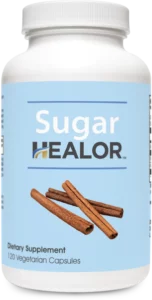
In the field of medicine, steroids have long been used to treat inflammation. However, despite their efficacy, they come with a range of side effects that can pose significant risks to patients. In this particular case report, we present a successful alternative approach to treating inflammation without the use of steroids. We employed high-dose alpha lipoic acid as a treatment for reducing systemic inflammation, and the results were truly remarkable.
Abstract:
Steroids are commonly prescribed for various inflammatory conditions due to their potent anti-inflammatory properties. They work by suppressing the immune system and reducing inflammation. However, the use of steroids is not without its drawbacks. Prolonged use can lead to a host of side effects, including weight gain, mood changes, osteoporosis, and increased susceptibility to infections. Therefore, finding alternative treatments that effectively address inflammation while minimizing these risks is crucial.
Alpha lipoic acid (ALA) is a naturally occurring antioxidant that has shown promise in reducing inflammation. It has been studied for its potential therapeutic effects in various conditions, including diabetes and neuropathy. In this case, we chose to utilize high-dose ALA as an alternative to steroids for treating inflammation.
Patient description:
The patient in question is a 47-year-old female who has been diagnosed with systemic rheumatoid arthritis and hidradenitis suppurativa. Over the course of several years, she has received intermittent treatment with prednisone, a glucocorticoid medication commonly used to manage the symptoms of rheumatoid arthritis. Unfortunately, one of the side effects of long-term prednisone use is weight gain, and this patient has experienced a significant increase in her body weight. This weight gain has become a concern as it has led to the development of early type 2 diabetes, a condition associated with obesity and insulin resistance. The negative impact of glucocorticoids on glucose metabolism is well-documented, and the patient’s increased risk for diabetes necessitates further intervention.
Furthermore, the patient’s chronic use of immunosuppressive medication has resulted in a compromised immune system, making her susceptible to multiple recurrent infections. Rheumatoid arthritis itself already carries an increased risk for infections due to the autoimmune nature of the disease and the subsequent dysregulation of the immune response. However, the chronic immunosuppression caused by long-term glucocorticoid use further exacerbates this risk. Recurrent infections can significantly impact the patient’s quality of life and overall health, leading to prolonged illness and potential complications.
The patient was experiencing multiple recurrent infections as a result of chronic immunosuppression. Over the course of 12 months, she had developed infections such as bacterial conjunctivitis, recurrent urinary tract infections, streptococcal pharyngitis, bacterial colitis, traveler’s diarrhea, and other various infections. To treat these infections, she had undergone several courses of antibiotics. The chronic immunosuppression was likely the underlying cause for her susceptibility to these recurring infections. It is important to address and manage the immunosuppression to prevent further complications and improve her overall health.
Case history:
The patient presented with a severe inflammatory condition and expressed a desire to explore alternative therapies to oral steroids. Given her past medical history of systemic rheumatoid arthritis and hidradenitis suppurativa, it was important to carefully consider the best course of action. After thorough consultation and consideration, we decided to initiate high-dose ALA treatment as a potential alternative to oral steroids.
The patient responded positively to the ALA treatment, experiencing a significant reduction in systemic inflammation. This not only alleviated her symptoms but also led to improvements in her overall health and well-being. One notable outcome was the absence of recurrent infections, which had previously been a concern for her.
By reducing reliance on oral steroids and introducing the high-dose ALA treatment, we were able to address the patient’s inflammatory condition effectively while minimizing potential side effects associated with long-term steroid use. This case highlights the importance of considering alternative therapies in certain situations, especially for individuals with complex medical histories.
Results of pathological tests and other investigation:
In order to assess the patient’s inflammatory status, we conducted an analysis of baseline inflammatory markers, including erythrocyte sedimentation rate (ESR), C-reactive protein (CRP), and the antioxidant levels of glutathione. The results of these tests revealed that all of the patient’s inflammatory markers, such as ESR and CRP, were significantly elevated. Additionally, the patient exhibited lower levels of glutathione, an important antioxidant in the body. These findings suggest a potentially heightened state of inflammation in the patient.
Furthermore, we also evaluated the patient’s glucose control by measuring their hemoglobin A1c (HbA1c) levels. The HbA1c value was found to be 9.1, indicating poor glycemic control over an extended period of time. As a result, the patient was referred to the endocrinology department and initiated on insulin therapy by her endocrinologist.
Treatment plan with Alpha Lipoic Acid:
The patient’s treatment plan included a combination of therapies aimed at improving insulin resistance and supporting adrenal function. Alpha lipoic acid injection was administered intramuscularly once a week, along with the supplementation of glutathione and a product Sugar HEALOR™ which contained berberine, inositol, and other supplements. These interventions were selected to target insulin resistance and support the patient’s overall metabolic health. In addition, the patient was started on DHEA at a dose of 25 mg twice daily to provide adrenal support. This hormone is commonly used in the management of adrenal insufficiency and may help regulate the body’s stress response. Furthermore, the patient received monthly IV therapy with vitamin-C and other vitamins to ensure optimal nutrition and support immune function. This comprehensive treatment approach aimed to address multiple aspects of the patient’s health and improve their overall well-being.

Outcome with Alpha Lipoic Acid:
In a three-month time frame, the patient’s ESR (erythrocyte sedimentation rate) levels decreased from 80 to 40, indicating a significant improvement in inflammation. Additionally, the C-reactive protein levels decreased from 40 to 20, further supporting the reduction in systemic inflammation.
Furthermore, the patient experienced positive outcomes beyond the improvement in inflammatory markers. She was able to lower her insulin dose, suggesting an enhancement in insulin sensitivity and glycemic control. This is particularly significant for individuals with conditions such as diabetes, where chronic inflammation can exacerbate insulin resistance.
Moreover, the patient reported a notable decrease in fatigue and other systemic symptoms associated with inflammation. Fatigue is a common complaint among individuals with chronic inflammatory conditions, and its reduction indicates an overall improvement in the patient’s well-being and quality of life.
These findings highlight the effectiveness of the treatment protocol or intervention employed in managing the patient’s inflammation. The decrease in ESR and C-reactive protein levels, along with the improvements in insulin requirement, fatigue, and other systemic symptoms, collectively demonstrate a positive response to the treatment strategy implemented.
Conclusion:
This case report highlights the potential benefits of using high-dose alpha lipoic acid as an alternative treatment for inflammation. While further research is needed to fully understand its mechanisms of action and long-term effects, the initial results are promising. By utilizing ALA, we can alleviate the reliance on steroids and reduce the associated side effects, ultimately improving patient outcomes and quality of life.
If you are interested in exploring alternative approaches to chronic inflammation and other medical problems, consult our functional Medicine specialists in Las Vegas to discuss more.








